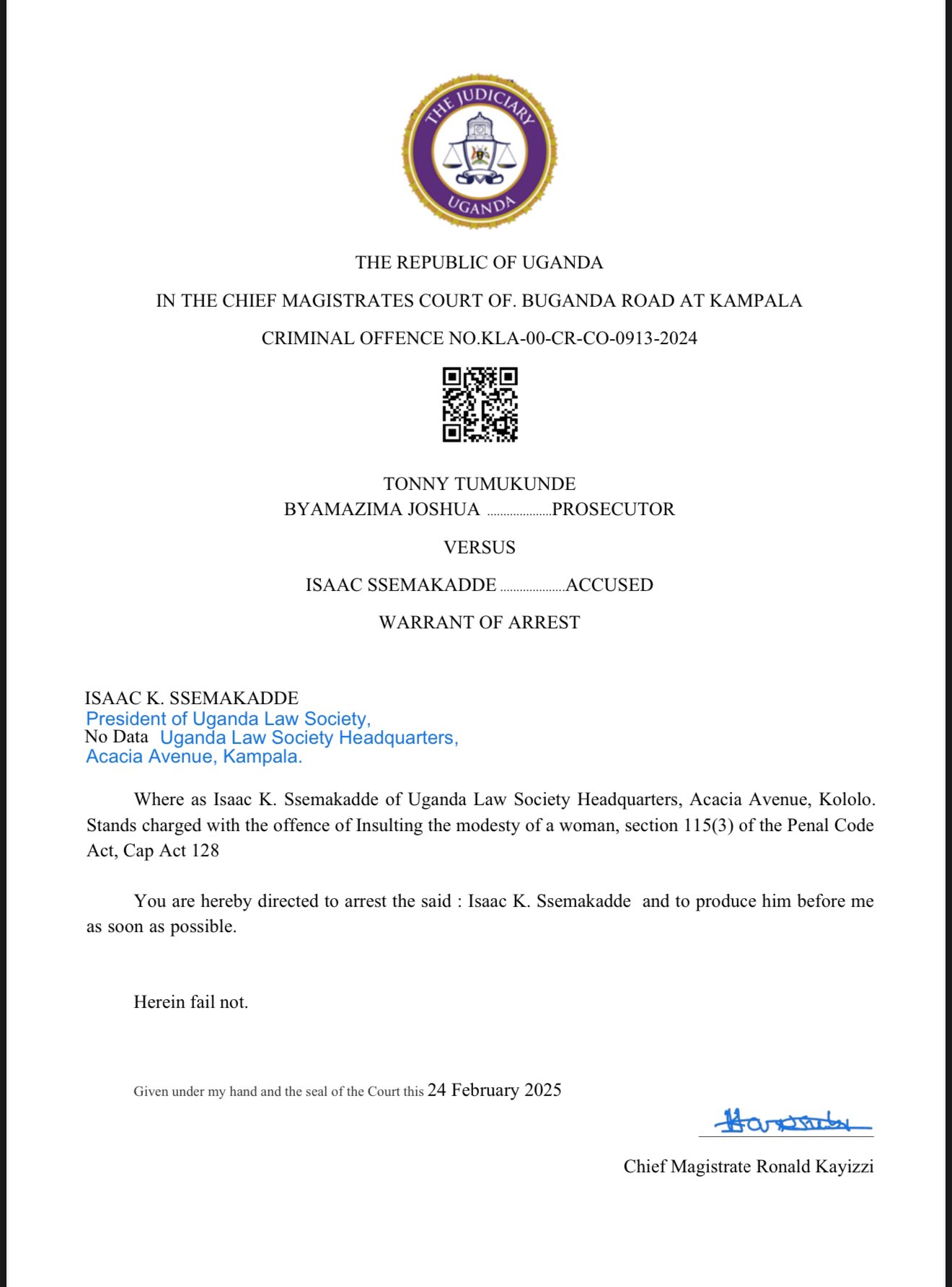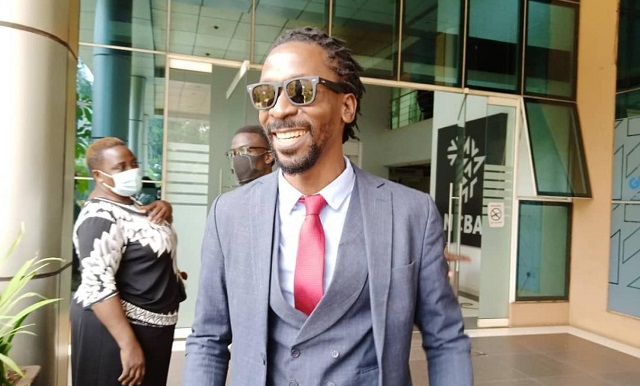The Buganda Road Court Chief Magistrate has issued an immediate arrest warrant for the Uganda Law Society (ULS) president, Isaac Ssemakadde, who is reportedly on the run.
The directive, issued by Chief Magistrate Ronald Kayizzi on Monday, February 24, 2025, orders law enforcement to apprehend Ssemakadde and present him before the court without delay.

According to the court order, Ssemakadde is facing charges under Section 115(3) of the Penal Code Act, Cap 128, for allegedly insulting the modesty of a woman. These charges arise from comments he is said to have made during a symposium in November 2024, where he allegedly directed derogatory remarks at Justice Jane Frances Abodo, the Director of Public Prosecutions. The statements quickly gained traction on social media, leading to widespread public condemnation.
Ssemakadde, who has been at the helm of the Uganda Law Society under the banner of his movement known as the Radical New Bar, is known for his outspoken and often controversial views on governance, the judiciary, and the legal profession. His leadership of the ULS has been marked by a push for radical legal reforms and an aggressive stance against what he describes as judicial excesses and state overreach.

Following the issuance of the arrest warrant, Ssemakadde’s legal team protested the decision, arguing that their client had legal representation and should not be compelled to appear in person. They described the move as unnecessary and prejudicial, insisting that his rights as an accused person were being infringed upon. However, the prosecution maintained that his physical presence in court was essential, as he needed to formally answer to the charges brought against him.
This latest legal battle adds to Ssemakadde’s growing troubles, as he was recently convicted in a separate case and sentenced to two years in prison for contempt of court. The ruling was delivered by High Court Judge Musa Ssekaana, who found Ssemakadde guilty of making offensive social media posts that were deemed to undermine the authority of the judiciary. The posts, which targeted Judge Ssekaana directly, were considered defamatory and disrespectful to the court, leading to the harsh penalty.

The court’s ruling in the contempt case has been met with mixed reactions, with some legal analysts arguing that it sets a dangerous precedent for freedom of speech and dissent within Uganda’s legal fraternity. Supporters of Ssemakadde have accused the judiciary of using its powers to silence critical voices, while others argue that his remarks crossed ethical boundaries and warranted legal consequences.
With the new arrest warrant now in effect, law enforcement agencies are expected to act swiftly in executing the court’s directive. It remains unclear whether Ssemakadde will voluntarily surrender or if authorities will have to track him down. His supporters, many of whom view him as a fearless advocate for legal and political reform, are closely watching the developments, as the case continues to draw national attention.

The Uganda Law Society has not yet issued an official statement regarding the arrest order, but the unfolding situation raises questions about the future of the organization under Ssemakadde’s leadership. If arrested and convicted, he could face significant legal and professional repercussions, potentially affecting his role within the legal community.
As the case develops, the public awaits further updates on whether Ssemakadde will be taken into custody and how the judiciary will handle the latest charges against him. His legal troubles have only intensified debates on the balance between judicial authority, free speech, and the right to dissent in Uganda’s legal and political landscape.






